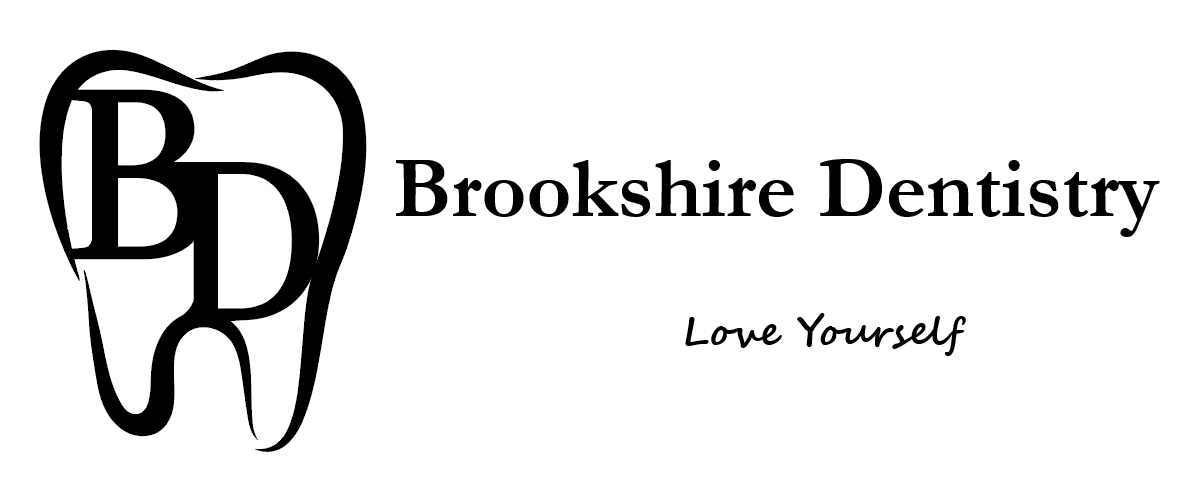Accidents happen, and sometimes they result in a chipped or broken tooth.
Whether it’s from biting into something hard, a sports injury, or even a fall, a chipped tooth can be alarming. However, with the right steps, you can manage the situation and seek the appropriate dental care to restore your smile. At Brookshire Dentistry in Hurst, TX, Dr. Salomeh Tehrani, DDS, MPH, and her team are here to help you understand what to do if you chip your tooth, how to manage pain, and what treatment options are available to repair the damage.
Immediate Steps to Take After Chipping a Tooth
The moment you realize you’ve chipped a tooth, it’s important to stay calm and follow these steps to minimize discomfort and prevent further damage:
Assess the Damage
The first thing you should do is assess the extent of the chip. Sometimes, the chip is small and doesn’t cause immediate pain, while in other cases, the damage can expose the inner layers of the tooth, leading to sensitivity or sharp edges. If the damage is severe or if you notice that the tooth has cracked deeply, it’s important to seek dental care as soon as possible.
Save Any Pieces of the Tooth
If you can locate the broken pieces of your tooth, try to save them. Place them in a clean container and cover them with milk, saline solution, or water. In some cases, Dr. Tehrani may be able to reattach the broken piece, depending on the type of damage.
Rinse Your Mouth
Rinsing your mouth with warm water will help remove any debris and keep the area clean. If the chip is accompanied by bleeding, rinse gently to avoid aggravating the injury.
Stop Any Bleeding
If your gums or lips are bleeding, apply gentle pressure using a piece of gauze or a clean cloth. Hold it in place until the bleeding stops, which usually takes a few minutes. Applying a cold compress to the outside of your mouth near the chipped tooth can also help reduce swelling and numb any pain.
Manage Pain and Discomfort
If you’re experiencing pain or sensitivity due to the chipped tooth, over-the-counter pain relievers such as ibuprofen or acetaminophen can help. Avoid chewing on the side of the damaged tooth and steer clear of hot or cold foods and drinks that might increase sensitivity.
Protect Your Tooth
If the chip has left a sharp or jagged edge, you can protect your tongue and cheeks by covering the tooth with dental wax or a piece of sugarless gum until you can get to the dentist. This will help prevent cuts or further irritation to your mouth’s soft tissues.
Schedule an Appointment with Your Dentist
It’s important to see Dr. Tehrani as soon as possible after chipping a tooth. Even if the chip seems minor, there may be underlying damage that needs to be addressed. A professional evaluation will ensure that your tooth is properly treated and that your smile is restored.
What to Expect at Your Dental Appointment
When you visit Brookshire Dentistry after chipping your tooth, Dr. Tehrani will thoroughly examine the damage to determine the best course of action. She will assess whether the chip has affected only the enamel (the outer layer of the tooth) or if it has penetrated deeper into the dentin or pulp, which can cause sensitivity and pain. Depending on the severity of the chip, the treatment options may vary.
Treatment Options for a Chipped Tooth
The good news is that there are several effective treatments available to repair a chipped tooth. Dr. Tehrani will recommend the best option based on the size and location of the chip, the overall condition of the tooth, and your personal preferences.
Dental Bonding
For minor chips, dental bonding is a common and effective solution. During this procedure, a tooth-colored resin material is applied to the chipped area, shaped to match the natural contour of your tooth, and then hardened using a special light. The bonding material blends seamlessly with your natural teeth, restoring both the appearance and function of the damaged tooth.
- Advantages of bonding: It’s a quick, non-invasive, and cost-effective solution that can often be completed in a single visit.
- When bonding is recommended: Bonding is typically used for small chips or fractures on front teeth where aesthetics are important.
Dental Veneers
If the chip is more significant or if you’re looking to enhance the overall appearance of your smile, Dr. Tehrani may recommend a dental veneer. A veneer is a thin shell of porcelain or composite resin that is custom-made to cover the front surface of the tooth. It provides a durable and natural-looking solution for chipped teeth.
- Advantages of veneers: Veneers are highly durable, resistant to staining, and can dramatically improve the appearance of your teeth.
- When veneers are recommended: Veneers are ideal for front teeth with moderate to severe chipping or for patients who want to improve the aesthetics of their smile.
Dental Crowns
For larger chips or when the structural integrity of the tooth is compromised, a dental crown may be the best option. A crown is a cap that covers the entire tooth, protecting it from further damage and restoring its function. Crowns are made from materials like porcelain or ceramic, which are designed to match the color of your natural teeth.
- Advantages of crowns: Crowns provide strong, long-lasting protection for damaged teeth and can restore both function and appearance.
- When crowns are recommended: Crowns are often used for back teeth or for teeth that have extensive damage that cannot be repaired with bonding or veneers.
Root Canal Therapy
In some cases, a chipped tooth can expose the inner pulp of the tooth, leading to pain, infection, or sensitivity. If this happens, Dr. Tehrani may recommend root canal therapy to remove the damaged pulp and seal the tooth. Afterward, the tooth may be covered with a crown to protect it from further damage.
- Advantages of root canal therapy: This procedure can save a severely damaged tooth and prevent the need for extraction.
- When root canal therapy is recommended: Root canal treatment is necessary when the damage reaches the pulp of the tooth, causing pain or infection.
Preventing Future Chips
While accidents can’t always be prevented, there are steps you can take to reduce the risk of chipping your teeth in the future:
- Wear a mouthguard: If you participate in contact sports or activities that carry a risk of facial injury, wearing a custom-fitted mouthguard can protect your teeth from damage.
- Avoid chewing hard objects: Refrain from biting down on ice, hard candy, pens, or other hard objects that can chip or crack your teeth.
- Address bruxism: If you grind your teeth at night (a condition known as bruxism), Dr. Tehrani can fit you with a custom night guard to protect your teeth from wear and tear.
Conclusion
Chipping a tooth can be an unexpected and unsettling experience, but with the right steps and professional care, it’s a situation that can be effectively managed. At Brookshire Dentistry in Hurst, TX, Dr. Salomeh Tehrani and her team are committed to providing prompt, compassionate care to restore your smile. If you’ve chipped a tooth, don’t wait—contact our office today at 1801 Precinct Line Rd Suite A to schedule an appointment and get the treatment you need to keep your smile healthy and beautiful.
By knowing what to do immediately after chipping a tooth and seeking timely dental care, you can ensure the best possible outcome for your oral health and maintain your confident smile.
Office Hours
MON8:00 am - 5:00 pm
TUE8:00 am - 5:00 pm
WED8:00 am - 5:00 pm
THU8:00 am - 5:00 pm
FRI8:00 am - 4:00 pm
SATClosed
SUNClosed



